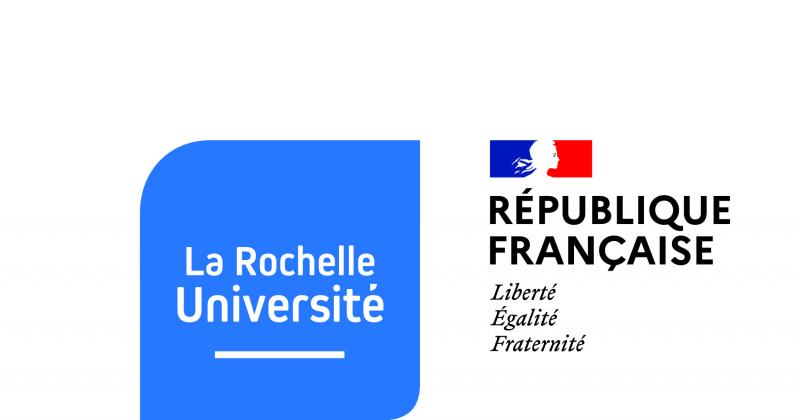COFUND PhD position - Civil Engineering
| ABG-133798 | Sujet de Thèse | |
| 13/10/2025 | Financement de l'Union européenne |

- Génie civil, BTP
Description du sujet
Title of the thesis project: Study of the mechanical behavior and stability of partially saturated heterogeneous soils on the seafront
Scientific description of the research project
In the current context of climate change, the frequency and intensity of storms and extreme weather events are increasing, placing greater and sometimes different stresses on soils, particularly in coastal areas. Under the effect of rapid and intense cycles of water saturation/desaturation, heterogeneous soils may be subject to swelling/shrinking phenomena or undergo significant changes in their mechanical strength, causing damage to the structures (housing or flood protection works) built on them.
The work proposed in this research endeavor aims to improve understanding of the mechanisms of deformation and modification of the mechanical strength of heterogeneous granular soils in coastal areas through the development of appropriate numerical tools and models. Heterogeneous clay soils, whose behavior is more complex, will be addressed in a second phase. This work will help to clarify the possible failure modes that cause complex processes such as soil deformation and the associated loss of mechanical strength, which can damage structures built on top of them (housing or protective structures). It should also lead to a tool for characterizing and predicting possible risks and will improve the design of structures built on heterogeneous soils. This project is part of the environmental and energy transitions defined in the Néo Terra roadmap, which is a scientific priority for the Nouvelle Aquitaine region.
Granular soils display intricate constitutive behavior due to their discrete composition, rendering their mechanical properties inherently complex. When both liquid and gas phases are present, forming a three-phase system, this complexity is further amplified, challenging the effectiveness of traditional constitutive models. However, it remains crucial for engineers to develop accessible and practical models to accurately analyze and predict the mechanical behavior and stability of granular soils, especially when subject to wetting and drying cycles at the structural scale.
Recent collaborative research conducted by La Rochelle University and the University of Calgary has successfully combined multiphase Lattice Boltzmann Methods (LBM) with the Discrete Element Method (DEM) to investigate the influence of increased water content and relative humidity on the apparent cohesion of granular soils. For the first time, their study numerically captures a regime transition in partially saturated porous media—from the pendular regime, dominated by capillary doublets between solid particles, to the funicular regime, where most capillary bridges have coalesced. This transition leads to a substantial reduction in capillary forces, triggering a spontaneous decrease in the overall mechanical strength of the granular assembly. While multiphase Allen-Cahn LBM approaches offer the possibility of phase separation and interface dynamics at the pore scale, current computational constraints, even with intensive GPU calculations, limit their ability to simulate the mechanical strength and stability of granular soils at the geostructure scale. To overcome this limitation, this project aims to implement a special scale-shifting technique that integrates small-scale capillary effects, enabling the derivation of mechanical properties at the engineering scale for multiphasic-heterogeneous soils.
To achieve this, we propose the numerical computation of an average stress tensor through homogenization of coupled DEM x LBM simulation results of a highly polydisperse, partially saturated granular assembly. These simulations will encompass three-dimensional models containing several tens of thousands, or even hundreds of thousands, of elementary particles, subjected to a variety of mechanical and hydraulic loadings. This mean stress tensor will be derived from discrete interparticle contact forces and small-scale capillary forces, facilitating the creation of a comprehensive database.
The above-mentioned database will then be utilized to determine the mechanical strength of partially saturated heterogeneous granular soils undergoing wetting and drying cycles. Transitioning to the macroscopic scale will involve coupled MPM x DEM or FEM x DEM numerical simulations at the geostructure scale, supported by Deep Learning techniques to identify a constitutive law tailored to partially saturated soils. Neural network approaches, trained on the previously established database, will play a central role in this scale-shifting process.
Prise de fonction :
Nature du financement
Précisions sur le financement
Présentation établissement et labo d'accueil
Since its creation in 1993, La Rochelle Université has been on a path of differentiation.
Thirty years later, as the university landscape recomposes itself, it continues to assert an original proposition, based on a strong identity and bold projects, in a human-scale establishment located in an exceptional setting.
Anchored in a region with highly distinctive coastal features, La Rochelle Université has turned this singularity into a veritable signature, in the service of a new model. Its research it addresses
the societal challenges related to Smart Urban Coastal Sustainability (SmUCS).
The new recruit will join the Laboratoire des Sciences de l’Ingénieur pour l’Environnement (LaSIE).
Cotuelle: University of Calgary (UC), Canada. Department of Civil Engineering.
Etablissement délivrant le doctorat
Profil du candidat
Applicants should hold a master’s degree in engineering or applied mathematics, with a strong background in Continuum mechanics, coupled phenomena in physics, and some knowledges in Machine Learning and/or IA, Applied and computational mechanics, Discrete Element Simulation.
Vous avez déjà un compte ?
Nouvel utilisateur ?
Vous souhaitez recevoir nos infolettres ?
Découvrez nos adhérents
 Institut Sup'biotech de Paris
Institut Sup'biotech de Paris  Généthon
Généthon  MabDesign
MabDesign  ADEME
ADEME  Groupe AFNOR - Association française de normalisation
Groupe AFNOR - Association française de normalisation  SUEZ
SUEZ  Laboratoire National de Métrologie et d'Essais - LNE
Laboratoire National de Métrologie et d'Essais - LNE  CESI
CESI  Nokia Bell Labs France
Nokia Bell Labs France  ONERA - The French Aerospace Lab
ONERA - The French Aerospace Lab  Tecknowmetrix
Tecknowmetrix  Aérocentre, Pôle d'excellence régional
Aérocentre, Pôle d'excellence régional  TotalEnergies
TotalEnergies  Ifremer
Ifremer  ANRT
ANRT  PhDOOC
PhDOOC  MabDesign
MabDesign  CASDEN
CASDEN  ASNR - Autorité de sûreté nucléaire et de radioprotection - Siège
ASNR - Autorité de sûreté nucléaire et de radioprotection - Siège


